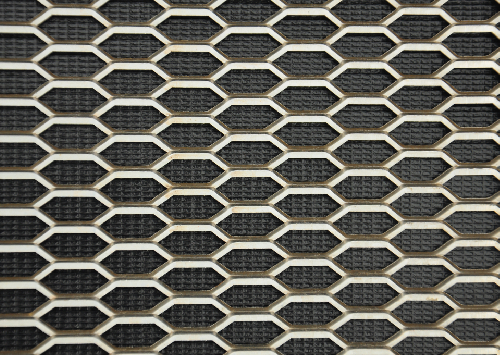

10月 . 12, 2024 15:42 Back to list
Aluminium Shredding An Essential Process for Recycling and Sustainability
Aluminium is one of the most widely used metals in the world, prized for its lightweight, strength, and resistance to corrosion. With increasing industrialization and urbanization, the demand for aluminium continues to rise, leading to a pressing need for effective recycling methods. One innovative solution that has gained prominence is aluminium shredding. This process not only facilitates the efficient recycling of aluminium but also contributes to environmental sustainability and resource conservation.
Aluminium shredding involves breaking down scrap aluminium into smaller pieces or flakes. This can include everything from leftover scrap from manufacturing processes to discarded automotive parts and household items like cans and foil packaging. The primary goal of shredding is to reduce the size of the material, which makes it easier to transport and process in subsequent recycling stages.
The shredding process typically begins with the collection of aluminium waste. This can be done through curbside recycling programs, waste management facilities, or dedicated recycling centers. Once collected, the scrap aluminium is sorted to remove any contaminants such as plastic, rubber, or other metals. This is crucial, as impurities can affect the quality of the recycled aluminium. Following this, the sorted aluminium is fed into industrial shredders, which use powerful blades to break down the material into smaller particles.
One of the significant advantages of aluminium shredding is its efficiency. Shredded aluminium occupies less space, making it easier to store and transport. This not only reduces logistics costs but also diminishes the carbon footprint associated with moving materials over long distances. Additionally, the small size of shredded aluminium allows for more efficient melting during the recycling process. By increasing the surface area of the material, shredding reduces the energy required to melt the aluminium, making the recycling process more environmentally friendly.

Recycling aluminium through shredding is also economically beneficial. The economic landscape is changing, and there is now a growing market for recycled aluminium. Using shredded aluminium, manufacturers can produce new products at a lower cost while conserving energy and natural resources. Recycled aluminium requires only 5% of the energy needed to extract and process raw aluminium, significantly lowering greenhouse gas emissions and energy consumption.
Moreover, aluminium recycling plays a crucial role in promoting a circular economy, where materials are reused and repurposed rather than discarded. By shredding and recycling aluminium, we can extend the lifecycle of the metal and reduce the demand for virgin resources. This shift not only conserves natural resources but also minimizes the environmental impact associated with mining and processing raw materials.
As global awareness of environmental issues continues to grow, the importance of aluminium shredding and recycling cannot be overstated. It provides an effective solution to waste management, resource conservation, and reduction of carbon emissions. Communities, industries, and individuals must work together to promote recycling initiatives, ensuring that aluminium and other materials are disposed of responsibly.
In conclusion, aluminium shredding is a critical process in the recycling industry that supports sustainability and environmental responsibility. By transforming waste into usable resources, it helps pave the way for a more sustainable future, one shred at a time. Embracing aluminium shredding as a standard practice not only enhances recycling efforts but also fosters a culture of sustainability that can benefit generations to come.
Latest news
The Future of Metal Recycling: Revolutionizing Waste Management
NewsMay.14,2025
Optimizing Waste with Recycling Lines
NewsMay.14,2025
Municipal Solid Waste Sorting Line: Revolutionizing Waste Management
NewsMay.14,2025
Metal Shredders: Essential Tools for Efficient Recycling
NewsMay.14,2025
Maximize Your Profits with a Copper Wire Granulator
NewsMay.14,2025
Home Metal Shredder: A Smart Choice for Your Home Recycling Needs
NewsMay.14,2025